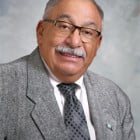Money in Politics
Money in politics transparency nears finish as legislative session winds down
|
An effort to close a significant loophole in New Mexico’s campaign disclosure laws and bar campaign contributions from lobbyists and political committees to lawmakers during legislative sessions has a tailwind heading into the final week of the legislative session.
And at a key committee Monday night before heading to the House floor, lawmakers added new provisions to Senate Bill 42 to give the public more timely information about who is giving to campaigns. Those additions come from a bill sponsored by Rep. Matthew McQueen, D-Galisteo, that’s unlikely to clear the Legislature, having passed the House but not the Senate with five days left in the legislative session.
The newly combined bill, sponsored by Sen. Majority Leader Peter Wirth, D-Santa Fe, Sen. Katy Duhigg, D-Albuquerque, and McQueen, adds new requirements to prevent tactics used by a nonprofit group in 2020 to avoid disclosing who contributed hundreds of thousands of dollars to support a ballot referendum on converting the Public Regulation Commission from an elected to an appointed body.
The non-profit argued it followed the letter of the law by not disclosing contributors who put in writing that their money should not be used for politics, even though the nonprofit spent that money on the ballot measure. The measure the nonprofit campaigned for passed but the public still doesn’t know who was behind their deluge of advertising.
Senate bill 42 would change the letter of the law, requiring groups such as the nonprofit that spent on the 2020 campaign that want to avoid disclosing certain donors to deposit those contributions in a separate bank account that isn’t used to pay for political activity.
The bill also bars lawmakers, the governor and other statewide elected officials from accepting donations from lobbyists or political committees during the legislative session.
The bill would require candidates who loan their own money to their political campaigns to offer proof they actually made the loan, and they wouldn’t be allowed to charge interest on the loan. Candidates often loan their campaigns money, especially when running for office for the first time, and can later pay the loan back from future campaign contributions. This provision would prevent a scenario in which a candidate made money off interest on a loan they carried on their books over many years.
New additions to Senate bill 42 from McQueen’s other bill, House Bill 103, would require more timely reporting of campaign contributions so the public has more complete information just before elections and just before the legislative session each year.







